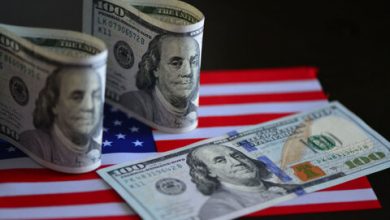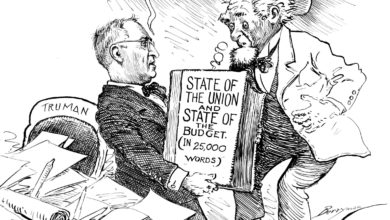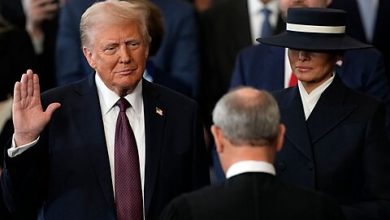Good and Bad Critiques of the Trump Civil Fraud Verdict

On Friday, New York Judge Arthur Engeron found Donald Trump and officials of his Trump Organization to have engaged in extensive financial fraud, and ordered them to pay $355 million under Section 63(12) of New York’s Executive Law, under which the state’s attorney general can seek unusually broad remedies for such fraud. The figure is expected to grow with the charging of back interest.
There are some plausible criticisms that can be made of this outcome, and other criticisms that are flimsy indeed yet popular among people who should know better.
Start with some of the plausible criticisms. The power to order equitable disgorgement, as it is called, is one that judges often use sparingly, in part because its consequences can be harsh. If you lie about having a degree and are found out years later, should you have to fork over everything you earned over a career that depended on the bogus credential? This kind of logic, if you call it that, underlies some (though only some) of the big dollar figures in this case.
For example, the judge found Trump used faked‐up statements of financial condition to swing the necessary financing on his Old Post Office hotel project in Washington, DC. As a result, the judge ordered the former president to disgorge the entire $126,828,600 in profits he made over the five years he owned the project. This kind of reasoning leaves fortunes to hang on the web a prosecutor can spin with but‐for arguments.
Likewise, Trump’s current predicament reveals longstanding problems with the appeals bond system. Trump now has to post bond for the entire amount of the judgment, which will require a major commitment of assets even assuming an appeals bond company helps shoulder the risk. Liability reformers have long expressed concern that following giant verdicts the requirement for defendants to post full appeals bonds can prevent or discourage them from pursuing appeal.
There’s more. New York Attorney General Letitia James, in my view, committed a serious error of judgment when she made it a campaign theme to go after Trump by name — though contrary to some imaginings, elected prosecutors virtually never get taken off cases, nor do cases get thrown out, for reasons like that. To be fair, it’s not as if there wasn’t a steady stream of news revelations giving someone in her position strong clues that an investigation of the Trump Organization would probably strike pay dirt: the indictment and conviction of Trump CFO Allen Weisselberg and lawyer Michael Cohen, the 2017 discovery by Forbes that the Trump Tower triplex had been reported at three times its actual square footage, the Trump Foundation scandal, and on and on.
But some of the defenses offered on behalf of Trump simply don’t hold water, chief among them the claim that Trump’s conduct was somehow victimless and that the counterparties, primarily banks and insurance companies, came out fine.
Prof. Orin Kerr tackles this claim in a blog post well worth reading in its entirety, and there is more to say. Invoking the other side’s due diligence, for example, is no magic pass. Engoron: “Because the Trump Organization is a private company, not a publicly traded company, there is very little that underwriters can do to learn about the financial condition of the company other than to rely on the financial statements that the client provides to them. Markarian [Claudia Markarian of Zurich Insurance, a Trump counterparty] credibly testified that, because of that, it’s important to know that our customers are being truthful to us. If they’re not giving us true information or accurate information, that greatly impacts our underwriting decisions.”
Another underwriter understood the Trump Organization to have represented “that there was no pending litigation or notices or communications that could lead to litigation and implicate the D & O [directors’ and officers’] policy, which he viewed in a positive light.” Oops! There was a pending investigation, which soon resulted in the presentation of claims under the policy. At that point the insurer realized risks were far higher than postulated, and come renewal time, it asked for a premium more than five times the old rate.
Lying about his net worth and property values also enabled Trump to get markedly lower interest rates from banks. Engoron credited an expert for the state who estimated that Trump saved $168 million in bank interest by posing as a better risk than he was. You can argue about this number, but it’s hard to argue it’s zero.
Overall, misgivings and all, I share Kerr’s reaction: it’s “not obvious to me what particular part of Judge Engoron’s 92‐page ruling is legally wrong.”





